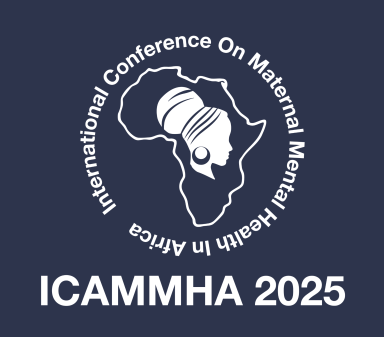ICAMMHA 2024
Spotlight on the Third International Conference on Maternal Mental Health in Africa (ICAMMHA24)
Held in Victoria Falls, Zimbabwe – December 2024
By Dr Susan Pawlby, Clinical Academic Developmental Psychologist
A Lifelong Connection to Africa
My relationship with Africa began over 50 years ago, when I travelled to Rwanda as a volunteer with Voluntary Service Overseas. It was 1970, and I had just completed a degree in Psychology and Philosophy. Arriving in a country few people in the UK had even heard of at the time, I taught English at the Université Nationale du Rwanda in Butare.
Those two years were life-changing. They sparked a lifelong commitment to Africa and its people.
Returning to the UK, I trained at the Child Development Research Unit at the University of Nottingham, where I became part of pioneering work on mother-infant interaction. The arrival of video recording technology enabled us to study the micro-moments of connection between mothers and their babies—frame by frame.
Later, during a posting in Nigeria, I explored mother-infant interaction in a new cultural setting. Back in the UK, I joined the Section of Perinatal Psychiatry at King’s College London, where my research focused on how maternal mental illness during the perinatal period affects child development from infancy into adolescence and beyond.
ICAMMHA 2024: A Vibrant, Groundbreaking Gathering
I’ve had the privilege of visiting 22 African countries, but I was especially excited to attend the Third International Conference on Maternal Mental Health in Africa (ICAMMHA) in Victoria Falls, Zimbabwe in December 2024. The theme—“The Future of Perinatal Mental Health in Africa”—captured the spirit of urgent innovation and deep care.
The conference brought together over 40 in-person delegates from 14 African countries and many more online. The energy and passion were palpable. What stood out was the wealth of locally driven projects designed to support maternal mental health and strengthen family wellbeing.
Key Themes and Priorities
Sessions at ICAMMHA 2024 explored many vital issues, including:
Risk factors for antenatal mental ill-health
Compassionate maternity care
Support for teenage mothers—and addressing stigma and exclusion
Engaging faith leaders in maternal mental health advocacy
Adverse childhood experiences and intimate partner violence
The intersection of HIV and pregnancy
Supporting mothers of premature or ill babies in neonatal care
The role of nutrition and breastfeeding in maternal mental health
Policy change and integrating maternal mental health into public health systems
Digital innovations designed for African settings
Developing culturally appropriate tools for screening and support
Crucially, women with lived experience of perinatal mental health challenges shared powerful testimonies. These stories underscored how co-design between professionals and service users leads to services that are not just more effective—but transformative.
Bringing the Baby into the Conversation
Alongside Inge Nickell, Director of the Brazelton Centre UK, I was privileged to present the only session that explicitly focused on the baby’s role in the mother’s recovery.
Drawing on experiences from the Mother and Baby Unit (MBU) in South East London, where I worked 25 years ago, we spoke about how meaningful support involves the mother-baby dyad, not just the mother alone.
One story, in particular, stayed with me:
“I can pinpoint the turning point in my recovery. It was during a session with the unit's child psychologist. She gently encouraged me to look into my son’s eyes, to smile and laugh with him. Until then, I hadn’t even seen him as a little person. But there we were—smiling at each other. I cried happy tears.
My baby was going to be okay. My family was going to be okay. I was going to be okay.”
— Read Kathryn’s full story on the Action on Postpartum Psychosis website
Looking to the Future
My hope is that it won’t take another 25 years for the baby’s voice to be fully recognised in perinatal mental health care across Africa. ICAMMHA 2024 was a powerful reminder that amazing work is already underway.
With collaboration, cultural relevance, and compassion, the future for maternal and infant mental health across Africa is not only hopeful—it’s bright.

ICAMMHA24

Welcome dance

Presentation

